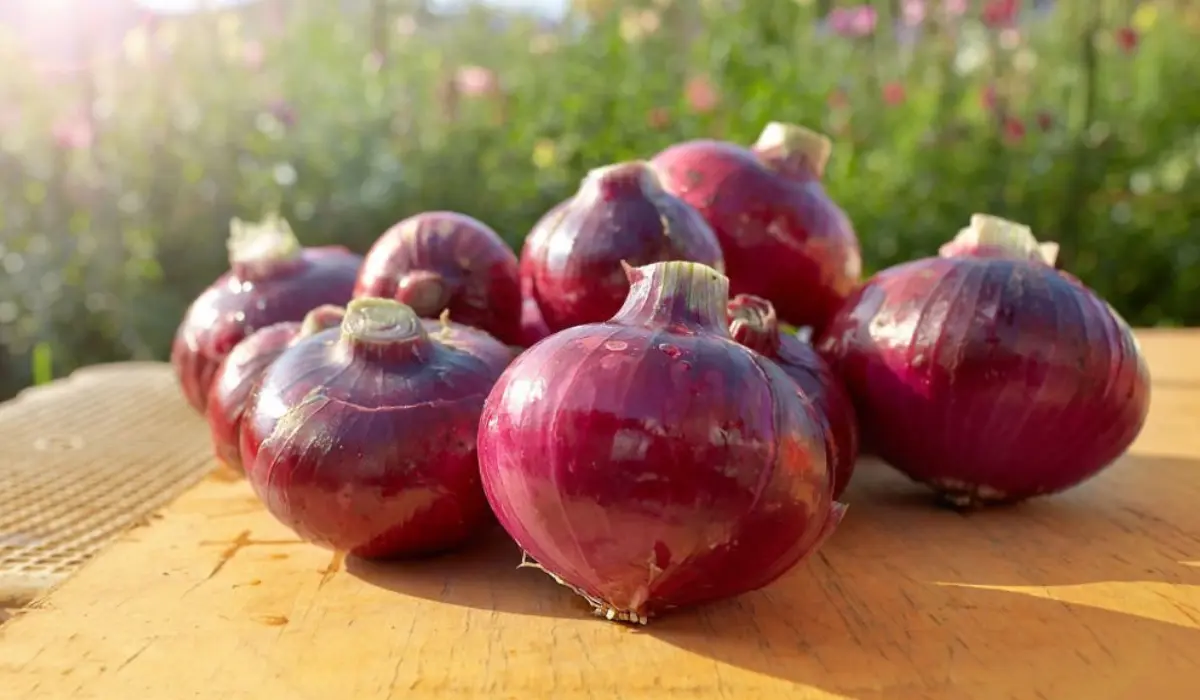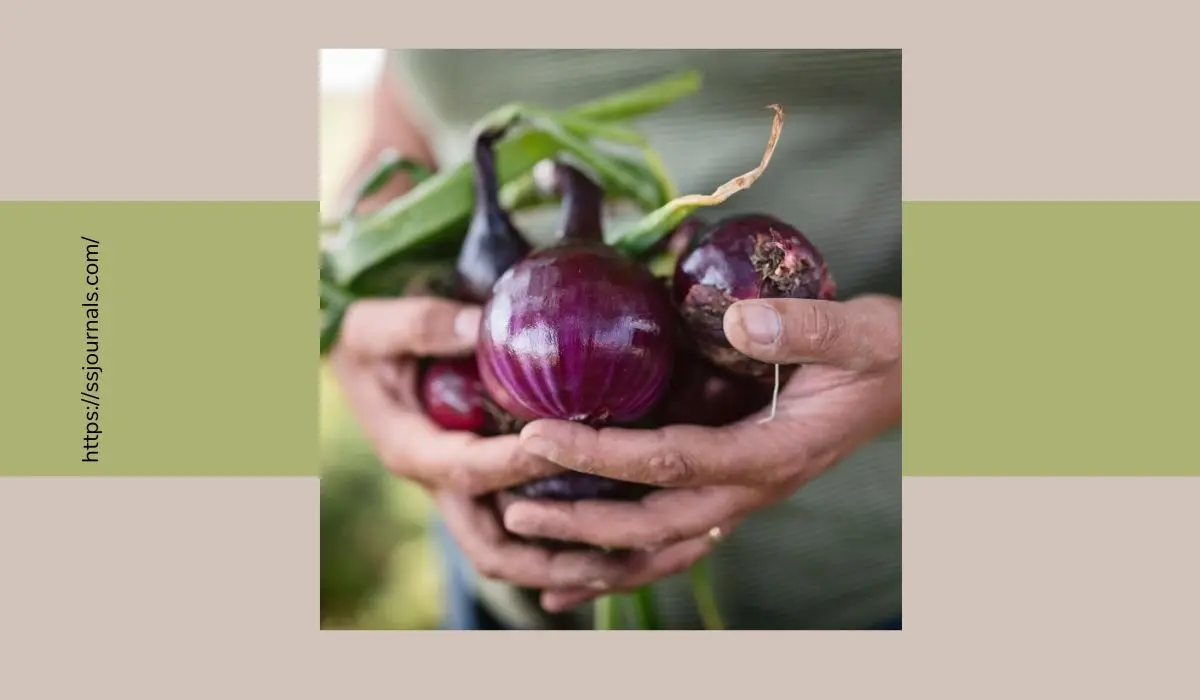Onions are a nutritious vegetable that has been used for cooking and herbal medicine for thousands of years. While most of us are familiar with the common yellow and white varieties, purple onions offer some unique health advantages.
Purple onions get their distinctive color from anthocyanins, antioxidant plant pigments that give many fruits and veggies their blue, purple, and red hues. Anthocyanins have been linked to reduced risks of certain cancers, heart disease, and other chronic illnesses.
Along with these special compounds, purple onions deliver fiber, vitamins, and minerals that boost immunity, heart health, and more. Read on to learn about the top proven purple onion benefits.
Health Benefits Of Purple Onions

Here are 5 key ways that purple onions can improve your health:
1. Rich in Antioxidants
The anthocyanins that provide the purple color in these onions are powerful antioxidants. Red and purple anthocyanidins, like cyanidin and peonidin, are the main types found in purple onions. Research shows anthocyanins can help protect cells from free radical damage and reduce oxidative stress and inflammation in the body. This may lower risks of chronic diseases like heart disease, diabetes, and neurodegenerative disorders.
2. May Fight Cancer
Studies indicate the anthocyanins in purple onions exhibit cytotoxic effects that induce apoptosis, or programmed cell death, in several different cancer cell lines. Population studies associate higher anthocyanin intake with reduced risks of colorectal cancer, stomach cancer, and breast cancer. The quercetin in onions also appears to have anticancer properties.
3. Boost Heart Health
The anthocyanins in purple onions serve as antioxidants that help protect cholesterol particles from oxidation. Oxidized cholesterol is more likely to stick to blood vessel walls. Onions also reduce clot formation and have natural aspirin-like properties that improve blood flow. This combination of effects protects cardiovascular health.
4. Immunity and Cold/Flu Prevention
Like other onions, purple onions contain compounds such as quercetin, sulfur compounds, and vitamin C that stimulate immune function. Onions help boost the activity of immune cells that phagocytose pathogens. Regularly consuming onions may help reduce the risk of certain infections as well as help fight off colds and flu.
5. Regulate Blood Sugar
The sulfur compounds in onions help improve insulin sensitivity and blood glucose control. Population studies link greater onion consumption with lower risks for diabetes. Sulfides appear to block the pathways for diabetes development. Onions also slow down the digestion of carbohydrates, regulating blood sugar spikes.
In addition to these benefits, purple onions provide dietary fiber for digestive and heart health, anti-inflammatory effects, and bone-supporting manganese. Red and purple pigments in produce are typically signs of powerful nutrition and phytochemicals with disease-fighting capacities. To maximize the health benefits of onions, enjoy them raw or only lightly cooked whenever possible.
Conclusion
Don’t overlook the vibrant purple onions in your grocery’s produce aisle. These flavorful bulbs provide a unique mix of protective compounds not found in their yellow and white counterparts.
The same anthocyanins that lend purple onions their rich color also endow them with antioxidant, anti-cancer, heart-healthy, blood sugar-regulating and immunity-boosting properties.
Taking advantage of their full nutritional benefits is as easy as incorporating purple onions into salads, salsa, soups, stir fries, and other raw or lightly cooked dishes. Mixing colors in your produce choices is a simple way to expand your nutritional spectrum.
FAQ
Purple onions get their distinctive color from anthocyanins, which are antioxidant compounds linked to lower risks of certain cancers, heart disease, diabetes, and neurodegenerative diseases. They provide benefits beyond yellow and white onions.
Purple onions can be used similarly to yellow or white onions in recipes. Their flavor is mildly sweet. They work well raw in salads, salsas and sandwiches, lightly cooked in soups and stir fries, caramelized in onion jam, or pickled.
Purple onions provide anthocyanins, quercetin, vitamin C, sulfur compounds, fiber, manganese, folate, and more. They deliver additional antioxidants and phytochemicals not found in other onion varieties.
Light cooking is fine, but raw or lightly cooked purple onions retain the most nutrients. Cooking onions for a long time at high heat will degrade some of their anthocyanins and quercetin content.
Yes, purple onions are richer in certain antioxidants, like anthocyanins, that may better protect cardiovascular health, lower diabetes risks, fight cancer, and support immunity. Their pigments signify the presence of additional beneficial plant compounds.
More:

